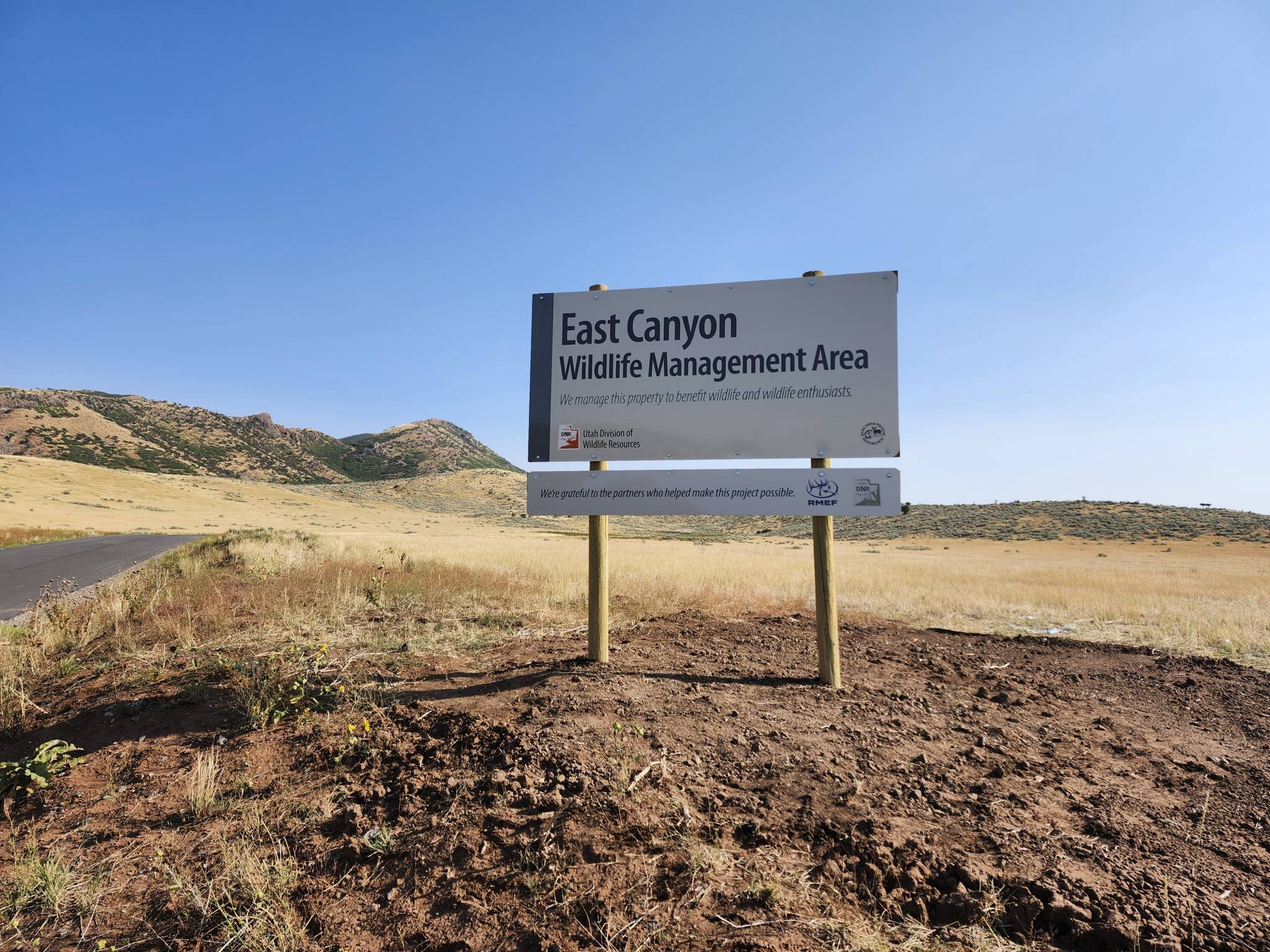DWR Press Release
HENEFER — An area that provides important habitat for deer, elk and sage grouse recently grew in size: The East Canyon Wildlife Management Area now totals 6,200 acres after more than 2,600 acres were added to the WMA after a recent land acquisition earlier this year.
At one point, the property was being considered for development. However, thanks to funding from the Utah Division of Wildlife Resources, the Utah Division of State Parks, the Utah Legislature and the Rocky Mountain Elk Foundation, the property will now be managed for wildlife and recreation and will be open to the public for hunting and other outdoor-related activities. A portion of the land was added to the East Canyon WMA and is located just north of the main entrance to East Canyon State Park.
“We’re very appreciative to the state’s hunters and all of the partners who helped provide the funding that made it possible to purchase this property,” DWR Director J Shirley said. “Most of Morgan County is private property, so obtaining this property will be a great benefit to wildlife in the area and will provide additional access for hunters in northern Utah.”
“An RMEF staffer connected with a DWR partner on a routine phone call this past spring and learned about a funding shortfall on this project. We are in a unique position to fill this kind of timely need, so we did,” RMEF President and CEO Kyle Weaver said. “Understanding the importance of this project to elk and mule deer, our board of directors called a special meeting where it approved the project within just days of learning about it. We’re grateful to our DWR partners and the private landowner for making this happen.”
Part of the property was also added to East Canyon State Park. In the future, Utah State Parks will build campsites and biking trails on their portion of the property.
“This collaboration between the Utah Division of State Parks and the Utah Division of Wildlife Resources is another example of Utah Department of Natural Resources agencies working to expand public access to Utah’s natural spaces,” Utah State Parks Director Scott Strong said. “By working together, we preserve critical wildlife habitats and create a wide variety of opportunities for outdoor recreation that all Utahns can enjoy. We’re excited about the future enhancements that will make this area more accessible and enjoyable for our visitors.”
While the new addition to the WMA is open to the public this fall, there are a few things visitors should know:
- To protect wildlife, the WMA is open only to walk-in traffic and those on horseback or on bicycles. Motorized traffic, including class 2 and class 3 e-bikes, are not allowed on the property.
- The WMA will be open from now until Jan. 1. Starting Jan. 1, it will close until the second Saturday in April to protect wintering wildlife, similar to other WMAs in northern Utah.
- Currently, there is no parking area on the newly acquired part of the WMA.
“If you visit the newly acquired area this fall, there won’t be any room to park,” DWR Northern Region Habitat Manager Daniel Olson said. “We obtained the additional property in July and have not been able to develop a parking area for it yet. There are two parking areas on the original part of the WMA –—located just west of the newly acquired portion — but they’ll likely get very crowded, very fast this fall.”
There are 194 wildlife and waterfowl management areas in Utah. The DWR started acquiring the areas in the late 1940s for several reasons:
- To conserve critical habitats for wildlife
- To help minimize and mitigate wildlife depredation on private property
- To provide anglers and hunters — who provide funding for the WMAs through the purchase of a fishing or hunting license — a place to hunt and fish in Utah
To learn more about the wildlife management areas and waterfowl management areas in Utah, visit the DWR website.

